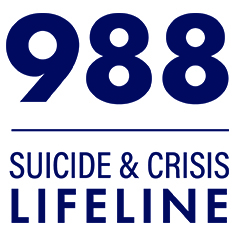A Teachable Moment for Schools – An Update
July 06, 2011

“How much louder does the public’s concern and outcry have to be before reason prevails?” These are the words of Steve Stuban, father of Nick Stuban. Nick Stuban’s death by suicide in January motivated an outcry from parents, students and members of the community throughout the Washington, D.C. metro area and spurred the Fairfax County School Board to take a closer look at school discipline policies.
Nick’s story also motivated me to write about zero-tolerance discipline policies in the context of suicide prevention. In my April post, I wrote that the punishment for Nick’s violation of school rules – a weeks-long suspension that removed social support during a time of heightened risk – was far too harsh a penalty for his error in judgment. Certainly Nick’s death can’t be blamed on the policy; suicide is never the result of a single event.
Just the same, in my post, I advocated for the school to review policies that remove students from all peer and social supports, examining policies with the total student in mind. For Nick, as for other teens and adults, social support plays a protective role against suicide in much the same way that exercise, medication, and healthy eating help protect against heart disease or diabetes.
In June, the School Board voted unanimously to consider alternative responses to disciplinary infractions, rather than automatically transferring students. Alternatives may include community service, attending school on Saturday, or a loss of school privileges.
This new approach takes into consideration the reality that teen identity and self-esteem are intertwined with peer relationships, and supported by teens’ affiliations. Separation from school, teachers, and coaches – as well as friends, classmates, and athletic teammates – negatively affects both.
Moving away from a zero-tolerance policy that doesn’t consider fully the context of the student’s situation or the unintended consequences of discipline is a step in the right direction. This approach is in sync with the period of development we call adolescence.
Adolescence is a time of trial and error. It is the errors we make during this time, and the lessons we learn from them, that shape our ethics, values, and the choices we make in the future. Discipline, particularly in the school context where youth spend so much of their time, is crucial to shaping young people’s ideas about what is right and wrong. But overly strict zero-tolerance policies do not leave room for young people to prove that they can do better if given the chance.
Making mistakes does not end in adolescence. Teens are astute observers of adult behavior. And it will not be lost on them that the Fairfax County Public Schools have stepped up, right now, when so many are listening, to say, “We have listened to our community, our policy is being revised, we have engaged in honest reflection, and learned from this teachable moment.”
